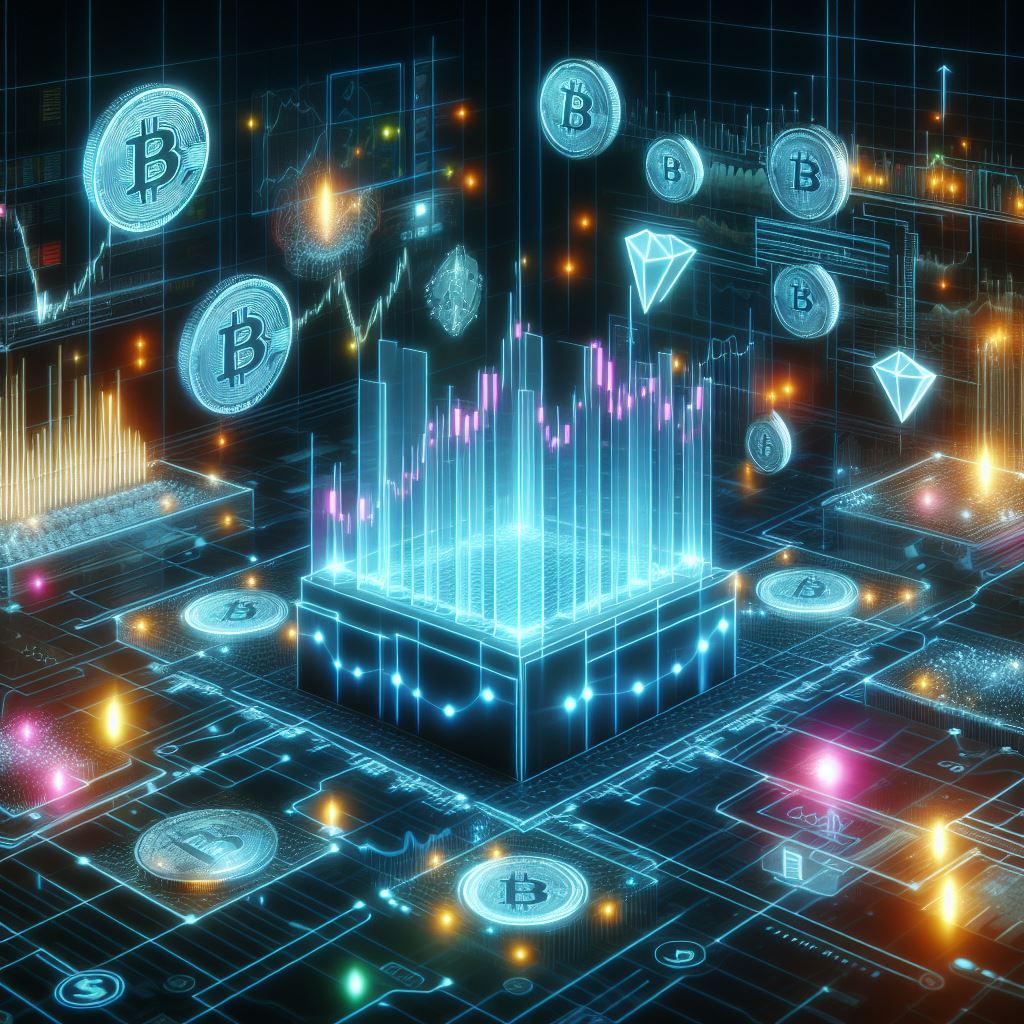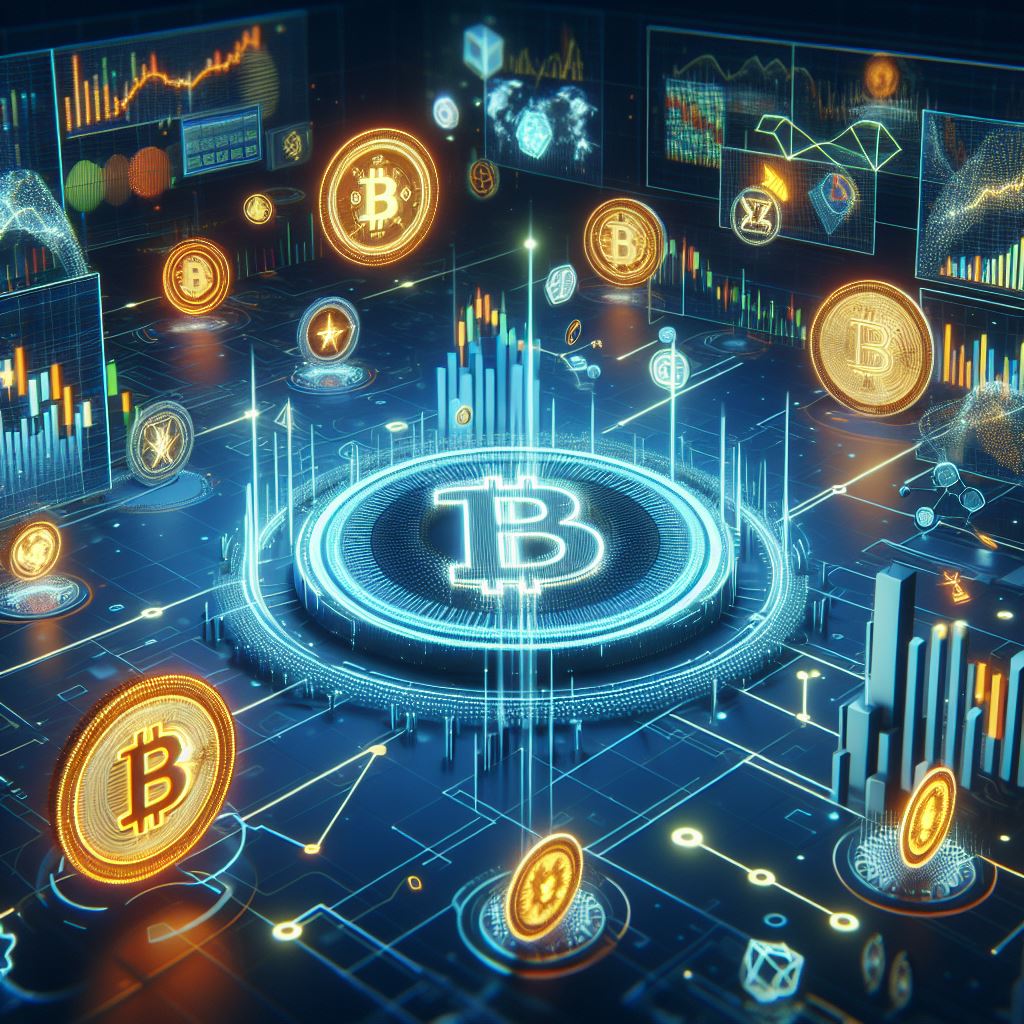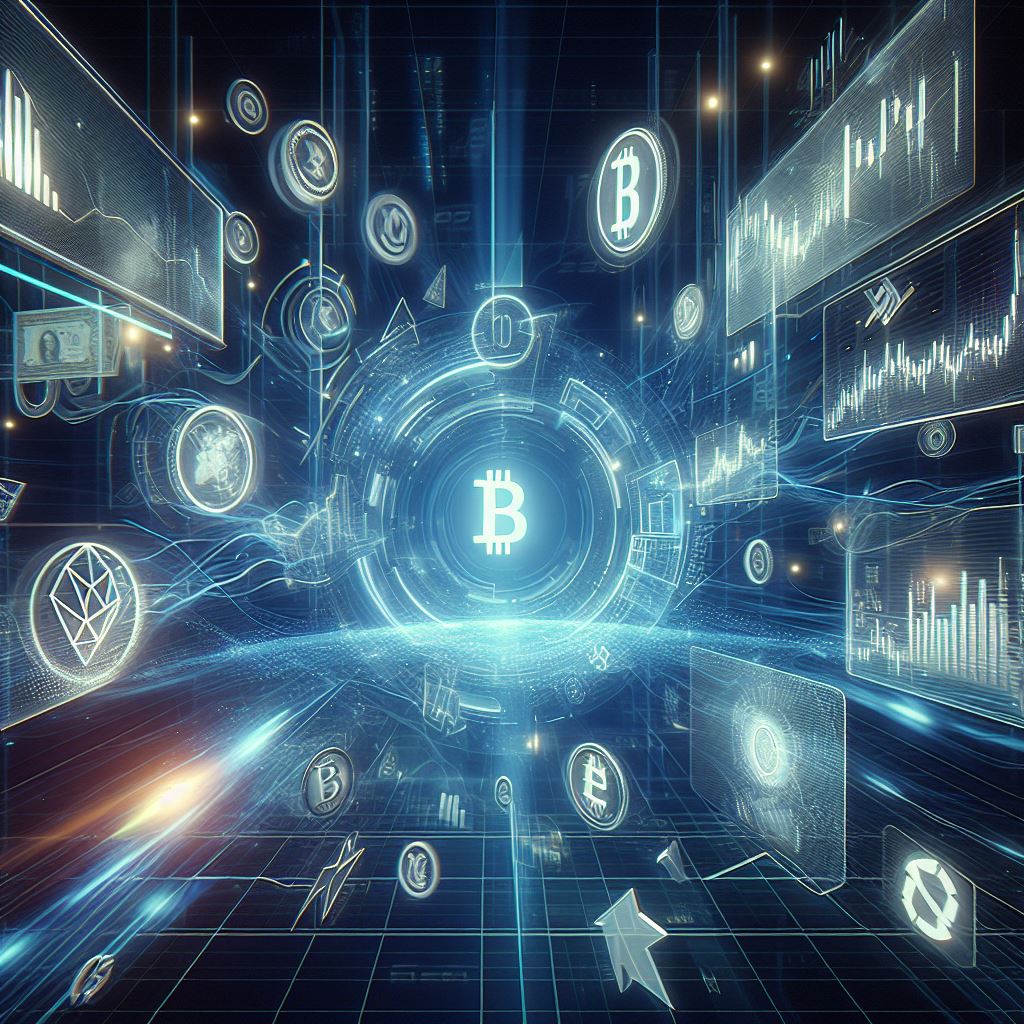Introduction and Key Takeaways
Artificial Intelligence (AI) or AI Crypto is rapidly transforming various industries, and the world of cryptocurrencies is no exception. From automated trading and market analysis to enhanced security and innovative decentralized applications, AI is driving a new wave of innovation in the crypto space.
Key takeaways from this article include:
- AI-powered trading bots and algorithms are increasingly being used to automate crypto trading and optimize investment strategies
- Machine learning models are being applied to crypto market data to identify patterns, predict trends, and inform investment decisions
- AI is being leveraged to enhance the security of crypto wallets, exchanges, and smart contracts through advanced fraud detection and anomaly detection techniques
- Decentralized AI applications are being built on blockchain platforms, enabling secure, transparent, and trustless AI services
- The intersection of AI and crypto is giving rise to new areas of research and development, such as AI-powered decentralized finance (DeFi) and AI-driven consensus mechanisms
In this article, we’ll explore the various ways in which AI is being applied to the crypto ecosystem, the benefits and challenges of AI integration, and the potential future impact of AI on the crypto landscape.
AI-Powered Crypto Trading
One of the most significant applications of AI in the crypto space is automated trading. AI-powered trading bots and algorithms are being used to analyze vast amounts of market data, identify profitable trading opportunities, and execute trades automatically.
Benefits of AI Trading
AI trading offers several key benefits over manual trading:
- 24/7 Trading: AI bots can monitor the crypto markets and execute trades 24/7, taking advantage of opportunities around the clock.
- Emotion-Free Trading: AI algorithms make decisions based on predefined rules and historical data, removing the influence of human emotions like fear and greed.
- Backtesting: AI models can be trained and tested on historical market data to optimize their performance before being deployed in live trading.
- Speed and Efficiency: AI can process and react to market data much faster than human traders, enabling high-frequency trading strategies.
Popular AI Trading Platforms
Some popular AI-powered crypto trading platforms include:
- Cryptohopper: A cloud-based trading bot platform that supports multiple exchanges and offers pre-built and customizable trading strategies.
- 3Commas: A smart trading terminal that offers portfolio management, automated trading bots, and a marketplace for trading signals.
- Bitsgap: An all-in-one crypto trading platform that offers AI-powered bots, arbitrage opportunities, and portfolio tracking.
- Hummingbot: An open-source algorithmic trading platform that supports market making and arbitrage strategies across multiple exchanges.
While AI trading can be profitable, it’s important to note that it also carries risks. AI models are only as good as the data they are trained on and the assumptions they make. They can struggle to adapt to sudden market shifts or black swan events. As with any trading strategy, it’s crucial to do your own research, understand the risks involved, and never invest more than you can afford to lose.
AI for Crypto Market Analysis
In addition to powering trading bots, AI is also being used to analyze crypto market data and extract valuable insights. Machine learning algorithms can process vast amounts of historical price data, trading volumes, social media sentiment, and news articles to identify patterns and predict future market movements.
Types of AI Market Analysis
Some common types of AI-driven crypto market analysis include:
- Sentiment Analysis: Natural Language Processing (NLP) algorithms can analyze social media posts, news articles, and online forums to gauge market sentiment and predict price movements based on investor emotions.
- Price Prediction: Machine learning models like Long Short-Term Memory (LSTM) neural networks can be trained on historical price data to predict future price trends and identify optimal entry and exit points.
- Anomaly Detection: Unsupervised learning algorithms can identify unusual trading patterns or suspicious activities that may indicate market manipulation or insider trading.
- Correlation Analysis: AI can uncover hidden correlations between different cryptocurrencies, market indices, or external factors like regulatory news or macroeconomic events.
AI Market Analysis Tools
Several AI-powered crypto market analysis tools and platforms have emerged in recent years, including:
- TensorTrade: An open-source reinforcement learning framework for training and deploying AI trading agents.
- CryptoSignal: An AI-powered crypto trading assistant that provides market analysis, trade recommendations, and portfolio optimization.
- Santiment: A blockchain analytics platform that provides AI-driven market insights, on-chain metrics, and social media sentiment analysis.
- Omenics: A crypto market intelligence platform that uses AI to analyze news sentiment, social media trends, and other market indicators.
While AI market analysis can provide valuable insights, it’s important to remember that the crypto markets are highly complex and unpredictable. No AI model can perfectly predict future price movements, and relying solely on AI-generated signals can be risky. As with any investment decision, it’s essential to conduct thorough research, consider multiple perspectives, and exercise caution.
AI for Crypto Security
Security is a critical concern in the crypto space, with hacks, scams, and fraud being all too common. AI is increasingly being leveraged to enhance the security of crypto wallets, exchanges, and smart contracts.
AI-Powered Fraud Detection
One key application of AI in crypto security is fraud detection. Machine learning algorithms can analyze transaction patterns, user behavior, and other data points to identify suspicious activities and flag potential fraud in real-time.
For example, Chainalysis, a blockchain analytics firm, uses AI to detect and investigate illicit activities like money laundering, terrorist financing, and darknet markets. Their AI-powered tools can trace the flow of funds across multiple addresses and identify high-risk wallets or transactions.
Similarly, Elliptic employs AI to monitor crypto transactions and detect suspicious activities like darknet market purchases, ransomware payments, or sanctions violations. Their AI models can assess the risk level of individual wallets and provide compliance teams with actionable intelligence.
AI-Secured Wallets and Exchanges
AI is also being used to secure user access to crypto wallets and exchanges. Biometric authentication methods like facial recognition, fingerprint scanning, or voice authentication can be enhanced with AI to provide more robust and user-friendly security compared to traditional passwords or 2FA.
Projects like SingularityNET and Ocean Protocol are building decentralized marketplaces for AI services, where users can securely access AI-powered applications for crypto trading, market analysis, or portfolio management without trusting a centralized entity.
Decentralized AI crypto networks aim to align the incentives of AI developers, data providers, and users through native token economies. They use blockchain-based governance mechanisms to enable democratic decision-making and prevent any single entity from controlling the network.
While the intersection of AI and crypto holds immense promise, it also raises important ethical and regulatory questions. As AI becomes more integrated into crypto networks, it will be crucial to develop robust frameworks for data privacy, algorithmic accountability, and consumer protection.
Future Outlook and Challenges
The convergence of AI and crypto is still in its early stages, but it has the potential to reshape the future of finance and technology. As AI capabilities continue to advance and blockchain scalability solutions mature, we can expect to see more sophisticated AI-powered crypto applications emerge.
However, there are also significant challenges that need to be addressed:
- Regulation: The regulatory landscape for both AI and crypto remains uncertain and fragmented. Policymakers will need to develop clear guidelines around data privacy, algorithmic transparency, and consumer protection to ensure the responsible development of AI in the crypto space.
- Ethical Concerns: The use of AI in high-stakes domains like finance raises important ethical questions around fairness, bias, and accountability. Ensuring that AI models are transparent, auditable, and aligned with human values will be critical to building trust and adoption.
- Technical Limitations: Current AI techniques still have limitations in terms of interpretability, robustness, and generalization. Developing AI systems that can reliably handle the complexity and unpredictability of crypto markets remains an ongoing challenge.
- Talent Shortage: The intersection of AI and crypto requires a rare combination of skills in machine learning, cryptography, and distributed systems. Attracting and retaining top talent in this competitive space will be crucial for driving innovation.
Despite these challenges, the long-term potential of AI in the crypto ecosystem is immense. As more data, talent, and capital flows into this space, we can expect to see rapid advancements in AI-powered crypto applications in the coming years.
Conclusion
The integration of artificial intelligence into the world of cryptocurrencies is transforming the way we trade, invest, and secure digital assets. From AI-powered trading bots and market analysis tools to decentralized AI networks and enhanced security measures, the applications of AI in the crypto space are vast and rapidly evolving.
As the crypto ecosystem matures and more data becomes available, AI will play an increasingly critical role in extracting insights, automating complex tasks, and enabling new forms of decentralized intelligence. The intersection of AI and crypto has the potential to create a more efficient, accessible, and secure financial system.
However, the development of AI in the crypto space also raises important challenges around ethics, regulation, and technical feasibility. Addressing these challenges will require collaboration between researchers, developers, policymakers, and the wider crypto community.
Ultimately, the successful integration of AI and crypto will depend on our ability to build transparent, accountable, and trustworthy systems that align with human values. By leveraging the power of AI responsibly and innovatively, we can unlock new possibilities for financial inclusion, decentralized governance, and global cooperation.
Frequently Asked Questions (FAQ)
1. What is AI crypto?
AI crypto refers to the application of artificial intelligence techniques to the world of cryptocurrencies and blockchain technology. This includes using AI for automated trading, market analysis, security enhancement, and the development of decentralized AI applications on blockchain networks.
2. How is AI being used in crypto trading?
AI is being used to develop algorithmic trading bots and strategies that can analyze market data, identify patterns, and execute trades automatically. AI techniques like machine learning, deep learning, and natural language processing are being applied to historical price data, social media sentiment, and news to inform trading decisions.
3. What are some popular AI-powered crypto trading platforms?
Some popular AI-powered crypto trading platforms include Cryptohopper, 3Commas, Bitsgap, and Hummingbot. These platforms offer pre-built and customizable trading bots that can automate trading strategies across multiple exchanges.
4. How is AI being used for crypto market analysis?
AI is being used to analyze vast amounts of crypto market data and extract valuable insights. Techniques like sentiment analysis, price prediction, anomaly detection, and correlation analysis are being applied to historical price data, trading volumes, social media posts, and news articles to identify patterns and predict future market movements.
5. What are some examples of AI-powered crypto market analysis tools?
Some examples of AI-powered crypto market analysis tools and platforms include TensorTrade, CryptoSignal, Santiment, and Omenics. These tools provide AI-driven market insights, trade recommendations, and sentiment analysis.
6. How is AI being used to enhance crypto security?
AI is being leveraged to enhance the security of crypto wallets, exchanges, and smart contracts. Machine learning algorithms can analyze transaction patterns and user behavior to detect suspicious activities and flag potential fraud in real-time. AI-powered biometric authentication methods are also being used to secure user access to wallets and exchanges.
7. What are some projects working on decentralized AI crypto networks?
Projects like SingularityNET and Ocean Protocol are building decentralized marketplaces for AI services on blockchain networks. These platforms aim to enable secure, transparent, and trustless access to AI applications for crypto trading, market analysis, and portfolio management.
8. What are some challenges in the development of AI in the crypto space?
Some key challenges in the development of AI in the crypto space include regulatory uncertainty, ethical concerns around data privacy and algorithmic bias, technical limitations of current AI techniques, and a shortage of talent with expertise in both AI and crypto. Addressing these challenges will require collaboration between researchers, developers, policymakers, and the wider crypto community.








